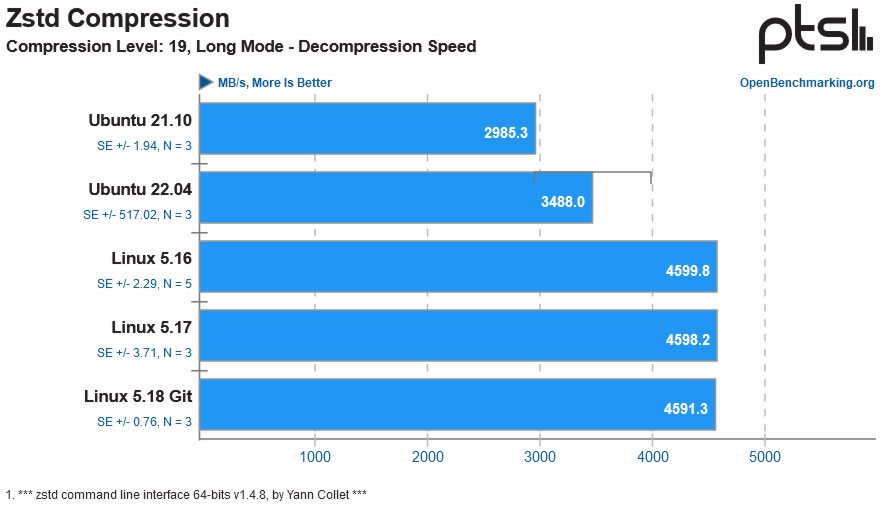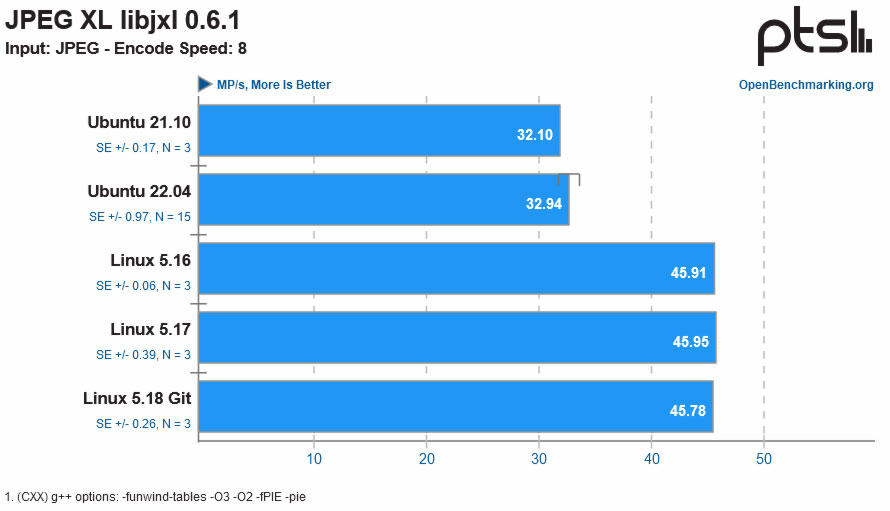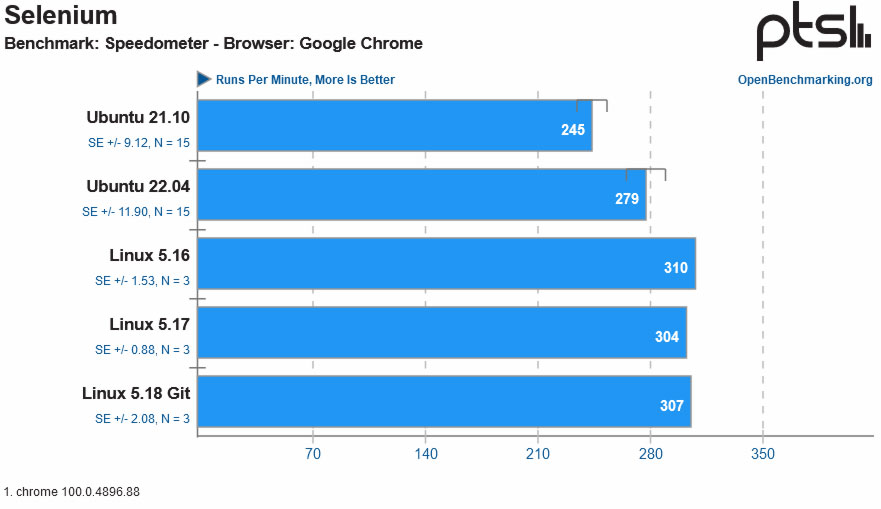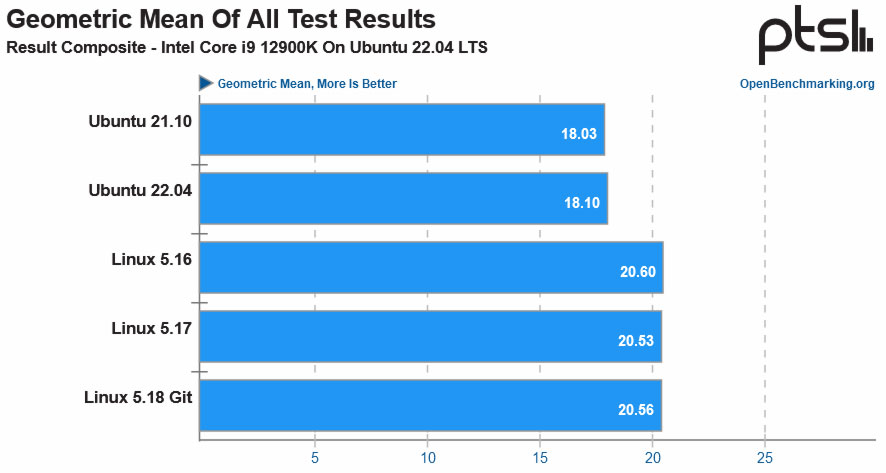Intel Alder Lake Ubuntu 22.04 LTS OS Users Should Consider a Kernel Update
Intel's newest processors have received important optimizations in more recent kernels.
Intel Alder Lake processor users running systems based upon Ubuntu 22.04 LTS "Jammy Jellyfish" may be sacrificing significant performance if they don't update the Linux kernel to a newer version. Linux-centric news site Phoronix made this observation earlier today, and backed it up with a flood of comparative benchmarks to show exactly how much performance could be lost without an update. Canonical's Jammy Jellyfish is currently in beta and is due to be released next week.
The crux of the issue with the latest LTS (long term support) release of Ubuntu is that it runs on Linux kernel 5.15 by default. In some ways this is sensible, as this kernel is also an LTS version. However, stable kernel 5.16 builds have been available since January, and 5.17 has been out for several weeks. These newer kernels include numerous hardware optimizations, and many of these are particularly important for users of the newest Intel 12th Gen "Alder Lake: processors to unleash the processing power within. The older Linux kernel is mainly stumbling over Alder Lake's hybrid architecture, its mix of performance cores (P-cores) and Efficiency cores (E-cores).
Jammy Jellyfish could have included some backported optimizations to aid its older kernel, but sadly does not. To help evaluate whether you need to update your Linux kernel, Phoronix has shared a large helping of benchmarks. You can head over to the site for the full scoop, but here are some highlights:



The comparisons were completed on a stock-clocked Intel Core i9 12900K with integrated graphics, on an Asus ROG Strix Z690-E Gaming Wi-Fi motherboard, with 2 x 16GB DDR5-5400 memory modules, and a 2TB WD Black SN850 NVMe SSD. The same system was used for the benchmarks, just with various Linux kernels.
In the cases where the Core i9-12900K does much better with newer kernels, Phoronix suggests that this is likely due to an older kenrel's sub-optimal use of the hybrid architecture. The most obvious banana-skin occurs when some tasks on the older kernels use E-cores when P-cores would be more appropriate yet are left idle.
The chart above shows the geometric mean across all the tests run. In essence, this shows that there is around a 14% improvement for the i9-12900K when moving from Ubuntu 22.04's stock kernel to later releases.
Phoronix finds Canonical's decision not to backport some Alder Lake optimizations to kernel 5.15 quite surprising. It notes that the step up in performance we can see in the move to 5.16 was precipitated by the addition of just three lines of code. For many users, it may be worthwhile moving to a newer kernel version on Ubuntu.
Get Tom's Hardware's best news and in-depth reviews, straight to your inbox.
The benchmark study focuses on the newer kernel benefits for Alder Lake users, but this isn't the full scope of the improvements delivered by the new kernel(s). If you have an AMD or older Intel processor. there are graphics driver improvements and some other updates.

Mark Tyson is a news editor at Tom's Hardware. He enjoys covering the full breadth of PC tech; from business and semiconductor design to products approaching the edge of reason.
-
peter jaques broken link. the text "head over to the site" doesn't, in fact, head over to the site, but to a local link on tomshardwareReply
